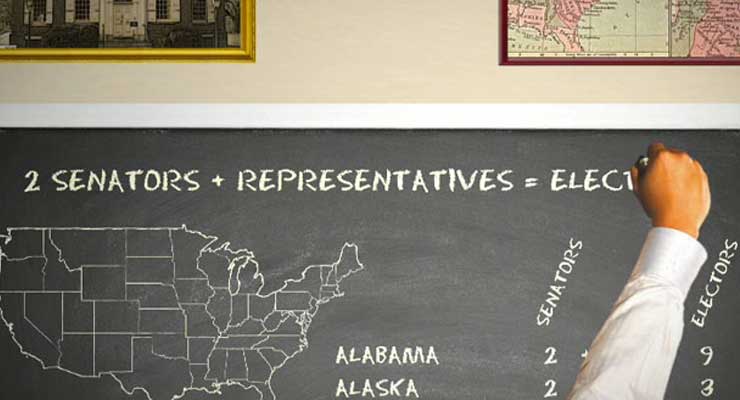
Depending on state, rules are very different for punishing electors who ignore the voting public
From Ballot Access News by Richard Winger:
The National Archives’ web page has a compendium of state laws on punishment for presidential electors who cast a vote in the Electoral College in December for someone other than the candidates they were pledged to.
The list of states says there are three state laws that say electors who vote “disobediently” shall be deemed to have resigned and will be replaced by the remaining electors. The list says these states are Michigan, North Carolina, and South Carolina. However, the South Carolina law does not actually say that, and furthermore the South Carolina law says the state chair of the political party involved may absolve a disobedient elector if the state chair believes that the elector’s behavior was beneficial.
For Michigan and North Carolina, the law saying that a disobedient elector automatically resigns, and will be replaced by the other electors, would not function effectively if all of the electors from that state disobeyed; there would be no one to replace them. Thanks to Jerrick Adams of Ballotpedia for the link.
According to the National Archives, electors in these States are not bound by State Law to cast their vote for a specific candidate:
ARIZONA – 10 Electoral Votes
ARKANSAS – 6 Electoral Votes
DELAWARE – 3 Electoral Votes
GEORGIA – 15 Electoral Votes
IDAHO – 4 Electoral Votes
ILLINOIS – 21 Electoral Votes
INDIANA – 11 Electoral Votes
IOWA – 7 Electoral Votes
KANSAS – 6 Electoral Votes
KENTUCKY – 8 Electoral Votes
LOUISIANA – 9 Electoral Votes
MINNESOTA – 10 Electoral Votes
MISSOURI – 11 Electoral Votes
NEW HAMPSHIRE – 4 Electoral Votes
NEW JERSEY – 15 Electoral Votes
NEW YORK – 31 Electoral Votes
NORTH DAKOTA – 3 Electoral Votes
PENNSYLVANIA – 21 Electoral Votes
RHODE ISLAND – 4 Electoral Votes
SOUTH DAKOTA – 3 Electoral Votes
TENNESSEE – 11 Electoral Votes
TEXAS – 34 Electoral Votes
UTAH – 5 Electoral Votes
WEST VIRGINIA – 5 Electoral Votes
Leave a Reply